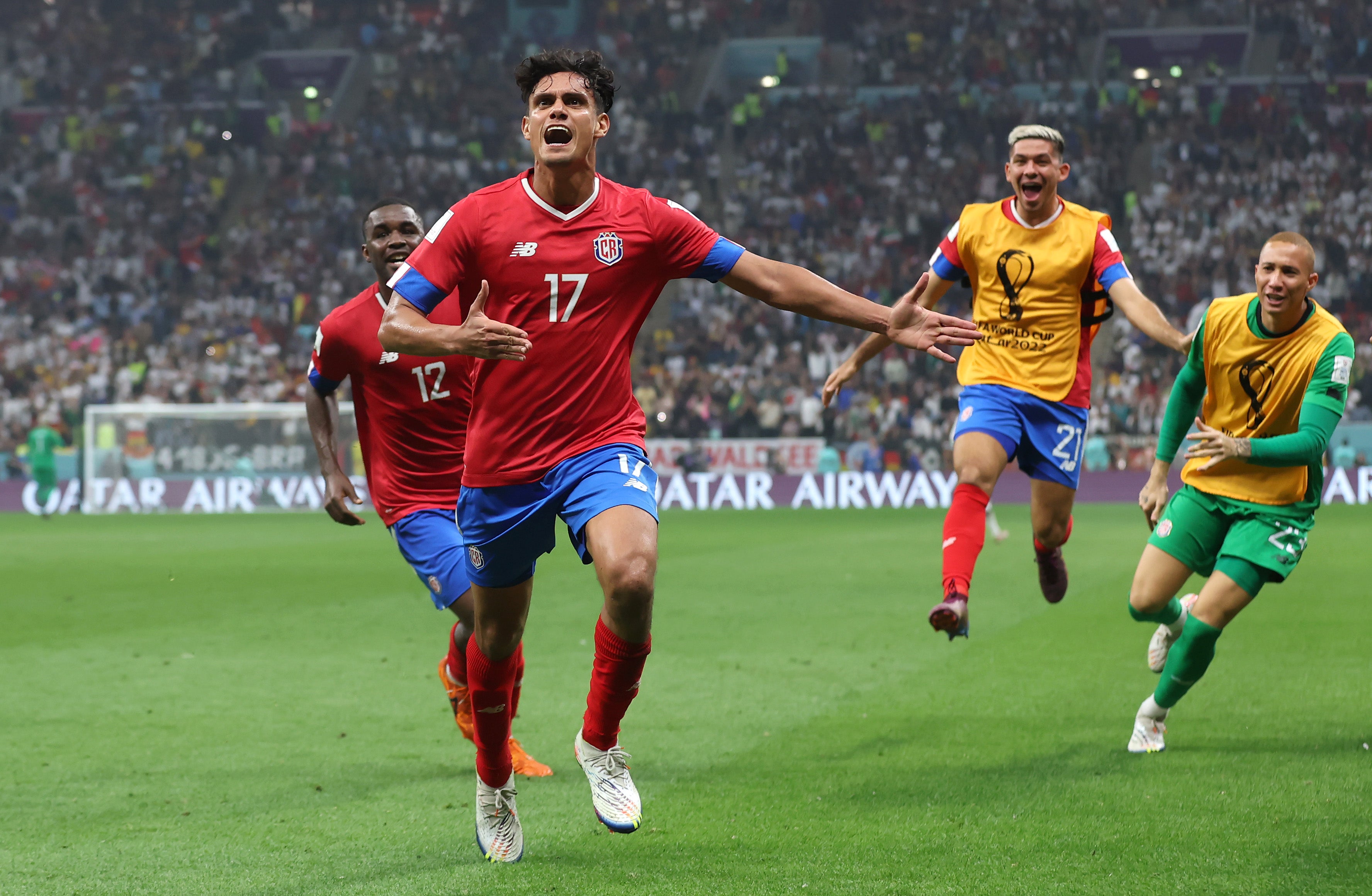Germany crash out of World Cup group stage despite victory over Costa Rica
Costa Rica 2-4 Germany: Spain’s shock defeat by Japan meant the Germans were eliminated in the first round in Qatar, finishing third in Group E
This is becoming a habit. The great achievers have become the great underachievers, the Turniermannschaft, the ultimate tournament team, the side who leave tournaments early, ignominiously, embarrassingly. Germany have stopped being Germany and the footballing world has lost one of its constants. Few victories have brought less pleasure to the four-time World Cup winners. This was not bittersweet because, despite Jamal Musiala’s brilliance, Kai Havertz’s brace and the latest example of Niclas Fullkrug’s power as an impact substitute, there was nothing sweet about it for Germany. Not when they are accustomed to so much more.
Their fate was in effect sealed before Stephanie Frappart, the first woman to referee a game at the men’s World Cup, blew the final whistle. It was clinched by two Japanese comebacks, the two goals in eight minutes they scored against Germany and the two in three they got against Spain. It left Germany needing five goals in the last five minutes of added time against Costa Rica.
And even on a credibility-defying night of sometimes illogical drama at the Al Bayt, that wasn’t quite possible. Instead a thrashing proved decisive: The third result that ultimately eliminated Germany was Spain’s 7-0 win over Costa Rica. As they finished level on points with Luis Enrique’s side, it meant they needed a similarly sizeable scoreline. And while they had the chances, their frailty was part of the problem. They conceded twice in 12 minutes. Somehow, they trailed in a game they dominated. The team who used to bring order to proceedings now experienced chaos.
It added to the mystery of Costa Rica who, against Spain and for swathes of this game, looked one of the weakest teams in the tournament and yet contrived to beat Japan and score twice against Germany. For a few minutes, they were on course to qualify before Havertz ensured it was a case of mutually assured destruction. Winners and losers go out together. But in 2022, as in 2018, Germany were left to count the cost of a defeat by Asian opposition, whether South Korea or Japan. In 2022, as in 2018, they go out in the group stage. They have not played a knockout game in the World Cup since the 2014 final and they will not until 2026, at the earliest.
By then, Musiala will still only be 23. He was magnificent, striking both posts in the space of 10 minutes with either foot, his dancing feet leading Costa Rica a merry dance. He was a reason why Germany had 20 shots and 11 on target. It had the feel of a routine night when Alvaro Morata had Spain ahead and Serge Gnabry gave Germany the advantage, glancing in a header from David Raum’s cross.
But, as against Japan, profligacy was still a problem. Musiala signalled their intent with a shot after a minute. Leon Goretzka came close, the unmarked Thomas Muller headed wide, and they racked up the shots.
Yet, amid their superiority, there was a warning sign, and Germany failed to heed it. Antonio Rudiger might have been lured into complacency but he was casual as he tried to juggle the ball over Keysher Fuller, and the match winner against Japan almost had a second goal of the tournament, lashing a shot that Manuel Neuer tipped over.
So, after the break, Costa Rica delivered a goal out of nothing. The dynamic Fuller surged into the box and crossed, Kendall Waston plunged forward to head, and although Neuer parried that, Yeltsin Tejeda followed up to score. It was his belated first international goal. Juan Pablo Vargas got just his second, bundling in from close range after the dangerous Waston won a header from Joel Campbell’s free kick.

For the second successive match, Hansi Flick’s changes made a difference. Havertz might have rescued his own tournament, if not Germany’s, with a brace in his cameo. He stole in to meet Gnabry’s cross to restore their lead. Replacements combined for the equaliser, Havertz scoring from Fullkrug’s pass. Flick had resisted the temptation to start with his scorer against Spain, instead introducing him for the last 35 minutes; it was not even Halbkrug, let alone Fullkrug. Perhaps he should have started: Muller was ineffective again and when Fullkrug came on, it first required a sensational save from Keylor Navas to stop him from scoring.
Then he got a goal from close range after Joshua Kimmich’s pass was chested down by Leroy Sane; Fullkrug has gone from the second flight to the scorer of two World Cup goals in a year. But there will be no more.
Germany, who reached the last eight of every World Cup from 1954 to 2014, could not even make the final 16. And Gary Lineker’s old aphorism needs updating. He argued that football is a simple game, played by two teams of 11 men, chasing a ball for 90 minutes, and the Germans always win. But here even as they won, they were one of the World Cup’s biggest losers.



Join our commenting forum
Join thought-provoking conversations, follow other Independent readers and see their replies
Comments